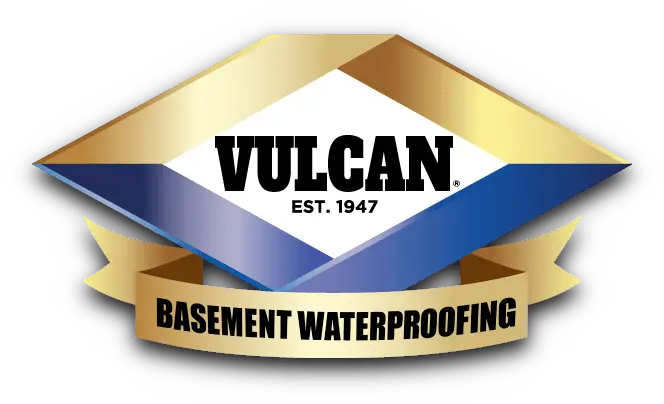It’s the water you can’t see that can destroy your foundation! Pitch or tar used to waterproof exterior walls at the time of original construction often deteriorate in as little as 3 to 5 years leaving the walls unprotected against the tremendous hydrostatic pressure of a high water table, underground streams or capillaries.
An excess of water around footings may undermine them causing damaging settlement of the foundation.
Concrete is made primarily of sand. Imagine what will happen to a block of sand in a pool of water. The erosion of concrete happens the same way, over time with the foundation slowly softening, then weakening until it gives way, bringing water into the basement or worse. This erosion can happen in block foundations even faster because they are generally hollow to begin with.
Once water has made it to the inside of the basement through the walls and/or floor, it can only get worse. So, as you can see, the water you see in the basement is only a “Symptom” — not the problem.
Sooner or later, the majority of home owners will have to do some form of basement waterproofing if they have any sub-soil area in their home.
First Steps in Waterproofing Your Basement
The first step in trying to remedy the problem is to figure out what type of problem you are dealing with and where the water, if any, is coming from.
Check for pools of water on the floor or damp spots on the wall.
Check the condition of the concrete and look for condensation on water pipes. Insulate water pipes.
Get a good basement ventilation system keep the windows in the basement closed on days when the relative humidity is higher than 40-45% outside.
Seal any cracks or crevices and use a sealer on the walls and floor to help reduce the effects of moisture entering from the porous masonry.
Make sure exterior downspouts are redirecting water away from the foundation of the house.
All of these steps will help alleviate minor water problems. If, however, the problem is more severe, you will need to contact a Vulcan waterproofing professional for more involved solutions.
Excavation and Coating Methods
Outside excavation and coating methods of waterproofing can be effective, but can also be very costly. Exterior excavation is commonly done when there is water penetration through the walls, in order to expose the exterior wall surface and apply a waterproofing coating or membrane. This method is usually effective, if done correctly, to stop water penetration through the walls.
The major drawback to excavation is the additional expenses incurred in removal and replacement of any sidewalk and/or driveway, deck, plantings and anything else that may be close to the wall you are planning to excavate around, as well as similar expenses should it leak again and require service. Make sure this is all discussed, planned and budgeted for with your contractor when deciding to utilize this method of basement waterproofing.
French Drain Systems
Another commonly known method is diverting surface water away from the foundation by the creation of a French drain. This essentially is a trench, often containing perforated pipe covered with gravel or rock that redirects surface water away from an area. It involves the laying of pipe and utilizes gravity to drain water from a high point to a low point some distance away. It can involve chopping up and replacing established landscaping and concrete. A French drain can last for some time without maintenance, but it can become clogged with sediment and cause a backup into the basement. To learn more about French drains.
